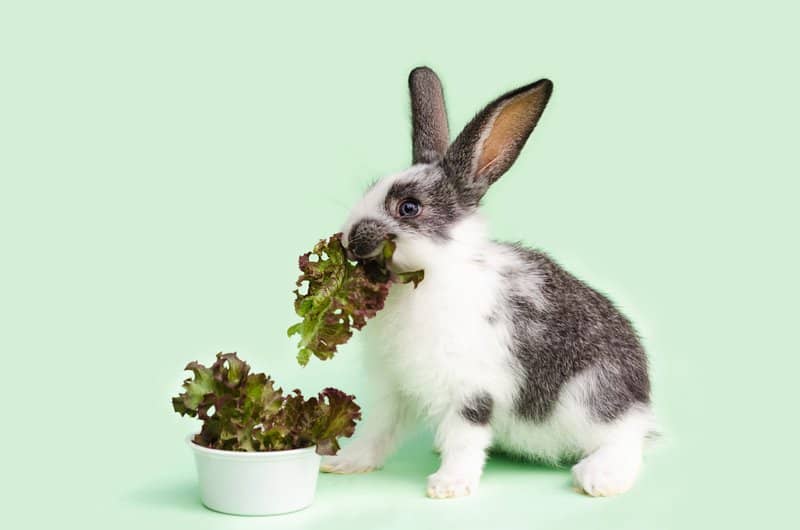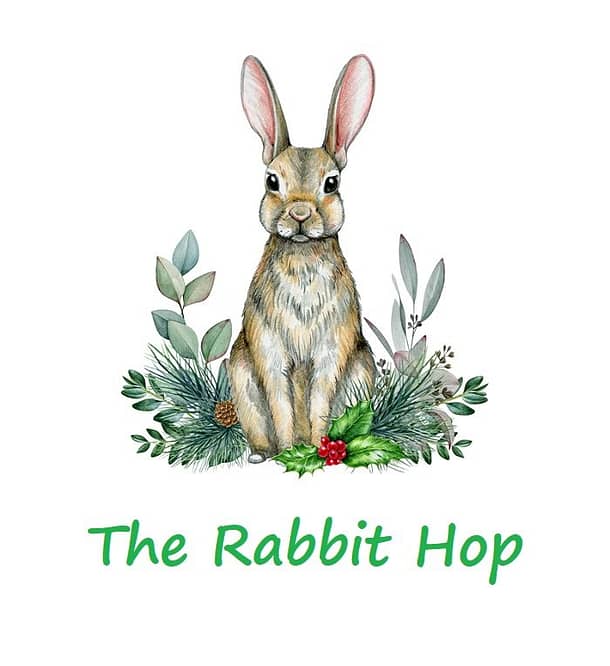Giving herbs for rabbit can be beneficial to your pet. However, not all herbs are safe to be consumed. Hence, you must know what herbs your pet can eat and enjoy. You must also give the herbs the proper amount to prevent your pet from experiencing a gut issue. This blog post will show you what herbs are safe for your pet. Keep reading to learn more!

Dill
An herb that you can give to your bunny is dill. It is a herb with low calories and fats but is rich in vitamins, fibers, minerals, and antioxidants. One of the benefits of giving dill to your pet is it protects your bunny against free radicals. Also, it is rich in vitamins and minerals, making it a great dietary supplement for your pet.
Overall, dill is one of the best herbs for rabbit. But you should not give your pet too much of this herb since it is high in calcium and phosphorus. Prevent feeding the dill flowers to your pet since they are very acidic. You must also not feed a pickled dill to your pet because it may suffer from an upset stomach.

Mint
Besides adding flavor to dishes and infusions, mint is also a good herb for the bunny’s health. It is packed with vitamins, minerals, fiber, and protein. Aside from that, all parts of the mint plant are safe for your pet. Feeding your pet mint can help improve digestion and strengthen immunity. Since mint has low oxalic acid, you can give it to your pet daily.
Unfortunately, there are varieties of mint that you should never give to your bunny. It is the European pennyroyal and the American pennyroyal. These varieties are toxic for bunnies and humans. You must also not provide mint to nursing bunnies since it dries up their milk. Giving your pet too much of this herb may result in painful bowel movements and loss of appetite.

Oregano
Because of its nutrients, oregano is recommended as a dietary supplement for rabbits. The herb can eliminate free radicals and relieve inflammation. It also has anti-bacterial properties and aids digestion problems. Although oregano has a strong smell, bunnies love it as a side dish. Wild rabbits also love feeding oregano whenever they find some in the gardens.
Oregano has a lot of benefits for rabbits, but it must be given to your pet only a little. You must only give your pet at least one to two stems of oregano on some days. A bunny that has consumed too much oregano may experience an upset stomach. Thus, you must ensure that your bunny is feeding the herb in moderation.
Rosemary
Giving rosemary to your bunny is safe. But it is one of the herbs for rabbit that has a pungent smell and strong taste. Thus, don’t be surprised if your bunny doesn’t want to eat it. Since rosemary is rich in vitamin A, it can improve your pet’s vision and develop its reproduction. Rosemary also strengthens bones and teeth and provides iron to the body.
However, too much intake of rosemary may cause your bunny to suffer from an upset stomach and gas pain. A small sprig of rosemary combined with other leafy greens satisfies your pet. When introducing the herb to your pet, you only to give a small amount of rosemary. Observe if its droppings become wet. If yes, you should stop giving the herb to your bunny.
Sage
Due to its strong flavor, most rabbits don’t like the taste of sage. However, some bunnies may like its flavor. Vitamins K and B6 are present in the herb. It also has calcium, manganese, and iron. Feeding your pet sage can protect it from inflammation and relieve pain. In terms of serving, you can give your rabbit at least two to three sage leaves once a week. Sage has a compound that can be toxic when ingested in a large amount called thujone. That is why giving sage to a mature bunny is not recommended daily. You may want a safer herb like dill for the bunny’s daily intake.

Thyme
Common thyme, also known as summer or garden thyme, is safe for rabbits. It has a mild minty flavor that rabbits love. Besides its taste, thyme is also a nutritious herb for your bunny. It contains Vitamin A, which can provide a natural oxidant to the bunny’s body. Thyme also supports the immune system and fights against inflammation and infection.
Similar to other herbs for rabbit, thyme should be taken in small amounts only. Since it is not high in fiber, your pet may experience gut issues and nutritional imbalance. When giving this herb to your pet, ensure that you choose fresh and fully green ones. Prevent giving a wilted herb to your pet.
Parsley
As a nutritional powerhouse, parsley is beneficial to your rabbit. It can provide your pet with good eyesight and strengthen its bones. The herb can also make the heart healthy and protect the body against cancer. It also has anti-bacterial properties that can protect your bunny against infections.
Although it is highly nutritious, parsley should be given in moderation to your pet. Overfeeding it with the herb may lead to bloating and gas pain. You can also provide the curly and flat-leaf since they are both safe for your bunny. Combining it with non-leafy veggies would be better if you want to feed your bunny a parsley root. Since it is high in calcium, never give it to bunnies with kidney stones.

Cilantro
If appropriately consumed, cilantro can be beneficial to your pet. It has anti-inflammation properties and vitamins that can protect your pet against diseases. Moreover, it can lower your pet’s blood sugar level and detoxify its body. But despite its nutrients, not all rabbits love it. If your bunny doesn’t like to eat cilantro, don’t force it.
Overfeeding your bunny with cilantro may have adverse effects on its health. After giving the herb, observe your pet to see if it’s experiencing loose stool anorexia. If your rabbit scratches its skin, it may be due to an adverse reaction. Stop giving cilantro to your pet if this happens.
Fennel
Do you have fennel in your home? Fortunately, it is one of the herbs for rabbit that you can safely give. It is a perennial herb with a crunchy texture and sweet taste loved by most bunnies. Fennels are also rich in vitamin C, potassium, and manganese. Moreover, the herb has antioxidant compounds and high fiber content.
Although fennel is fibrous, you should not give your pet too much since it may lead to stomach problems. If you’re giving raw fennel to your pet, ensure that you wash it first to remove dirt and pesticides. You can also give cooked fennels to your bunny, but ensure to feed your pet a small amount.

Lavender
When given in the right amount, lavender plants are good herbs for rabbit. Feeding your bunny with lavender can cure gastrointestinal, respiration, and cardiovascular issues. In addition, the herb has compounds that can fight micro-bacterial and fungal infections. Bunnies that ingest lavender may also experience relief from stress and anxiety.
Since the smell of lavender can be repellant, not all rabbits may want to consume it. You must also feed it to your bunny in small amounts only. Mixing it with other leafy greens is a good meal for your bunny. You can also give lavender to a stressed bunny since the herb has a soothing effect.
Lemon Balm
Since lemon blams are non-toxic herbs for rabbit, you can give them to your pet. Some of its benefits are relieving indigestion and boosting cognitive function. It is also a herb that can help a stressed and anxious bunny to calm down. Although it has little or no nutritional value, it has beneficial antioxidants.
Similar to other herbs, lemon balm should be given in moderation. The ideal serving is only one to two sprigs of the herb. Before you provide it to your pet, wash it first and remove all the insects. You can also mix lemon balm with the hay to add a slight variation to your bunny’s diet. You must also ensure that you are feeding your pet with fresh herbs.
Basil
Despite their strong smell and taste, basils are safe herbs for rabbit. They have huge amounts of vitamins. Furthermore, basil is rich in calcium, magnesium, iron, and potassium. Hence, it fights against inflammation and improves the rabbit’s eyesight. Basil also consists of compounds that lower blood glucose levels and prevent infections.
But like with other herbs, basil must be taken in moderation. This herb is rich in calcium which can be dangerous to bunnies. Too much calcium may lead to kidney stones and hypercalcemia. The ideal basil serving must not exceed ten percent of your bunny’s diet. Besides, you must not give it to your bunny every day.

Frequently Asked Questions
What herbs are dangerous to my rabbit?
Some herbs you should not give to your rabbit are belladonna, buttercup, poppy, and nutmeg. You must also not give lily of the valley, milkweed, jasmine, and hemlock. Bluebonnet, bloodroot, elder, and mistletoe are also toxic to rabbits. As a warning, never give herbs to your pet if you are unsure if it is harmful.
Why should I not give too much herbs to a rabbit?
The primary food of your bunny is hay because it can provide the fiber that your bunny needs. On the other hand, leafy greens like herbs only consist of 5% to 10% of your bunny’s diet. Feeding it with too much herbs may result in an upset stomach and other adverse effects.
What are the benefits of herbs for rabbit?
Most herbs are highly nutritious that help in keeping the bunny healthy. Besides the vitamins and minerals, these herbs also add variation to the bunny’s diet. A new taste and texture can encourage your rabbit to eat more. Giving your bunny the right amount of herb can protect it from diseases and infections. Below is a video discussing what other herbs are safe for rabbits.
Conclusion
Giving the proper herbs for rabbit can keep it healthy and strong. However, you must be careful in giving herbs to your pet since some can be toxic. Provide the proper amount, remembering that hay remains the primary food of your pet. As your bunny consumes these nutritious plants, expect it to grow healthy and strong.



